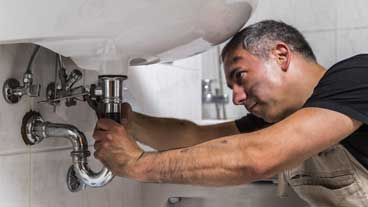All Categories
Featured
Table of Contents

[/image][=video]
[/video]
Before you hurry to call a plumbing or make some bad DIY option, you could desire to take a look at these plumbing keys that can save you time and cash. It is necessary to know where you water turned off shutoff remains in your home, as this can conserve you from even more major damages when plumbing problems take place.
As soon as everything is turned off, take a look at your water meter. A continued movement on your water meter when all water resources are turned off is a clear red flag that needs instant interest.
Slow drains are frequently an early caution indication of a bigger problem. It could suggest an obstruction in the making, a problem with your sewage system line, or also tree roots infiltrating your pipelines. Rather than waiting for the drain to come to be totally blocked, take action as quickly as you see a slowdown.

If these don't work, it might be time to call a specialist. Overlooking the issue could result in more major and expensive issues down the line. Recognizing where your primary water shutoff valve is can conserve you from potential water damage in instance of a major leak or plumbing disaster.
Should I Hire A Plumber?
Make sure every family adult recognizes where the shutoff valve is and just how to use it. In case of a serious leak, rapidly shutting off your home's water supply can reduce damages and offer you comfort while you await a plumbing technician to arrive. It's a preferred notion that chemical drain cleaners are the utmost remedy for clogged up drains an idea that could not be better from the truth.
The chemicals can rust the inner cellular lining of the pipes, leading to weakened frameworks, leaks, and also pipe ruptureds. They can seep into groundwater and pollute it, presenting dangers to neighborhood ecosystems.
These tools can efficiently clear blockages without triggering any kind of damages to your pipelines. If these approaches do not work, don't hesitate to call a specialist.

Over-tightening can lead to many problems, including removed screws and busted screws, resulting in leakages or even water damages. This common error in DIY plumbing jobs can turn a minor fixing into a costly venture.
Should I Do My Own Plumbing?
Plumber's tape, or Teflon or string seal tape, is an essential tool for every homeowner. It creates watertight seals at pipeline strings, stopping leaks at joints and links.

Prior to affixing any fittings, take a minute to cover a few layers of plumbing technician's tape around the strings in a clockwise direction. Make certain the tape covers all the threads and is wrapped snugly. This easy yet important step can save you from taking care of irritating leaks down the line.
Bear in mind that for bigger issues, expert assistance is always recommended. To prevent this from happening, take into consideration setting up pipeline insulation.
And also, during chillier months, pipeline insulation can assist avoid your pipes from freezing and breaking a circumstance that can lead to costly repair services. When it comes to securing components like faucets, numerous DIY fanatics instinctively grab a plumbing professional's putty. There's a choice that could offer you much better silicone caulk.
Should I Do My Own Plumbing?
This flexibility permits it to fit slight changes or motions without damaging the seal, offering a much more long lasting and lasting solution. Just keep in mind to allow the caulk remedy totally according to the maker's directions prior to exposing it to water to make certain the most effective results. "Doping" in plumbing refers to using pipe dope, or pipeline joint substance, to the strings of plumbing connections before they're screwed together.
Latest Posts
Plumber
Plumber servicing
Emergency Plumbing